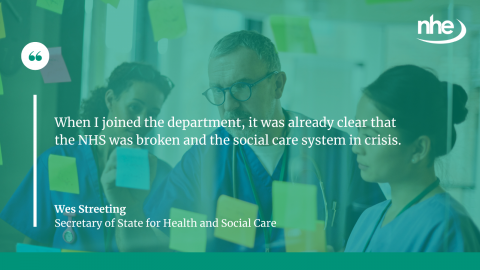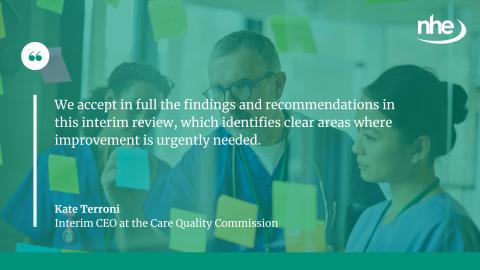Health secretary Wes Streeting has said the Care Quality Commission (CQC) is “not fit for purpose” after interim findings from Dr Penny Dash’s independent review showed major failings within the regulator.
Dr Dash’s report, which will not be published in full until the autumn, found a variety of shortcomings, including:
- low inspection levels;
- a lack of clinical expertise among inspectors;
- inconsistent assessments; and
- IT problems.
The oldest rating for an NHS hospital spans back more than a decade, while the oldest in social care dates back to 2015. The interim report estimates that one in five of the locations that the CQC can inspect have never received a rating at all.
This is in addition to the review hearing of inspectors who had never been in a hospital and care home inspectors who had never met someone with dementia. Within social care, providers are waiting too long for their registration and rating to be updated, subsequently impacting local capacity.
The government has now announced four immediate steps to restore confidence in the regulator.

These include appointing Professor Sir Mike Richards to review the CQC’s assessment frameworks, improving transparency around how ratings are determined, increasing government oversight, and asking Dr Dash to review the effectiveness of all patient safety organisations.
“When I joined the department, it was already clear that the NHS was broken and the social care system in crisis,” said Streeting. “But I have been stunned by the extent of the failings of the institution that is supposed to identify and act on failings. It’s clear to me the CQC is not fit for purpose.”
He added: “We cannot wait to act on these findings, so I have ordered the publication of this interim report so action can begin immediately to improve regulation and ensure transparency for patients.”
Dr Dash herself has said that the CQC needs to urgently overhaul its inspection and assessment system, rapidly improve operational performance, and quickly fix faulty IT systems.
The CQC’s interim CEO, Kate Terroni, said that her organisations accepts the report’s findings and recommendations in full.

She commented: “Work is underway to improve how we're using our new regulatory approach. We’ve committed to increasing the number of inspections we are doing so that the public have an up-to-date understanding of quality and providers are able to demonstrate improvement.
“We’re increasing the number of people working in registration so we can improve waiting times. We’re working to fix and improve our provider portal, and this time we’ll be listening to providers and to our colleagues about the improvements that are needed and how we can design solutions together.
“We’ll be working with people who use services and providers to develop a shared definition of what good care looks like. And we’re also developing a new approach to relationship management that enables a closer and more consistent contact point for providers.”
NHS Providers’ CEO, Sir Julian Hartley, said that his organisation fully agrees with Dr Dash’s recommendations and rebuilding credibility will be a long road.
Care England’s CEO, Professor Martin Green OBE, added: “The CQC must embark on a radical improvement program that should not only include some tangible improvements in their performance, but also needs to move away from a culture of blame.
“We all want proportionate and effective regulation, and the challenge now is for CQC to take action and work with organisations across the sector to deliver it.”
Image credit: iStock



















